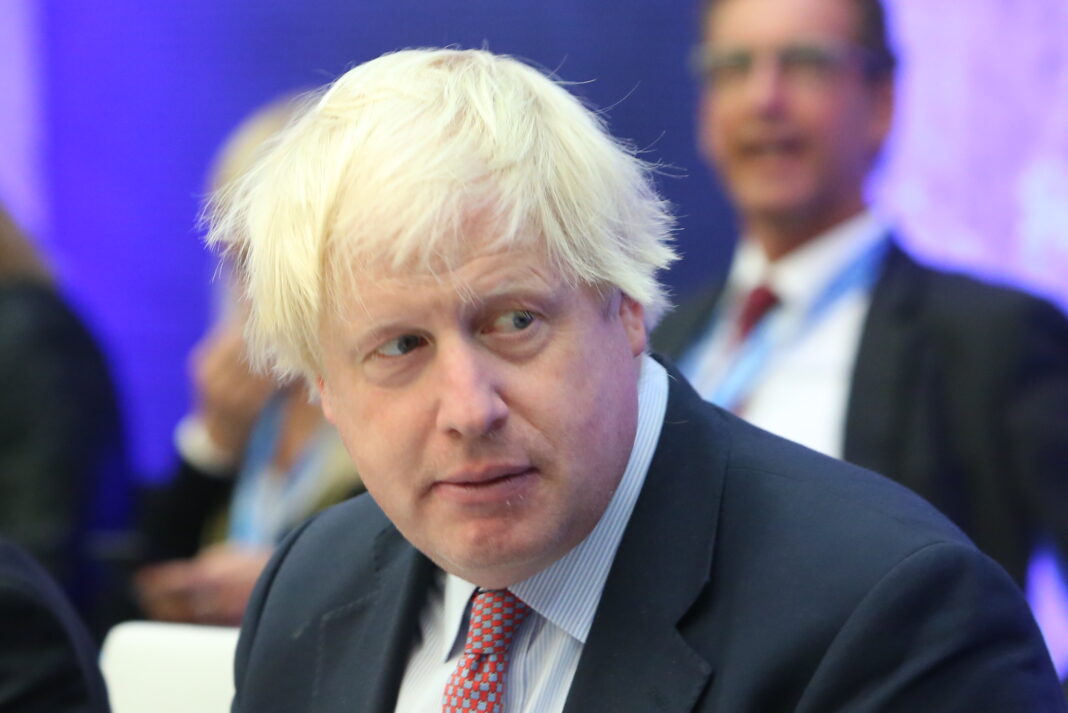1 July 2021 | ANALYSIS
I don’t know whether you’ve heard, but Britain’s been getting vaccinated.
Forget the resignation of the Health Secretary, forget about the accusations of Tory sleaze – all of this can be overlooked, because jabs are going in arms.
Well, that was my main takeaway from yesterday’s Prime Minister’s Questions.
And let’s give the Government some credit. The United Kingdom has administered more than 77 million vaccine doses, fully inoculated 62.4% of British adults, and now outflanked Israel in terms of roll-out rate.
Nonetheless, whilst the vaccine has saved lives, made a return to normality more likely and helped bolster public support for the Conservative Party, it cannot be a defence for the Prime Minister forever.
For those working in Number 10, I hope yesterday’s tussle between Boris Johnson and Sir Keir Starmer has finally made them realise that the Prime Minister cannot keep calm and carry on regurgitating the same political soundbites.
In recent times, the Prime Minister has managed to fend off the Despatch Box onslaughts from his forensic ex-lawyer counterpart through his journalistic deployment of alliteration and other catchy sentences.
But not this time.
“Why didn’t the Prime Minister sack the former Health Secretary on Friday morning?”, opened Starmer.
Johnson, in what would turn out to be his only real answer to Hancock’s downfall, seemed confident when he replied: “I read the story on Friday and we had a new Health Secretary in place by Saturday.”
The Prime Minister may have hoped that this would be the end of it, but Starmer had other ideas. The Leader of the Opposition, well aware that Johnson had said the matter was “closed” almost instantly after The Sun broke the story, goaded the Prime Minister by suggesting he was “the only person in the country who looked at that photo on Friday morning and thought that the Health Secretary shouldn’t be sacked immediately”.
After mocking Starmer’s own people management, which included the “fire and rehire” of the party’s deputy leader, Angela Rayner, and in an attempt to neutralise his opponent, the Prime Minister thought he could rely on the vaccine roll-out to defend himself. “That department,” Johnson snapped, “is getting on with the fastest vaccine roll-out of any European country.”
Unfortunately for the Prime Minister, he appeared not only to misread the room but to misread the country.
The Labour leader, in contrast, saw this as an opportunity to recharge an attack line that had failed to cut through with the electorate: Tory sleaze.
Interestingly, the sleaze line was not employed in the aggressive way that many left-wing pundits would prefer Starmer to use it. Rather than badgering on, the Leader of the Opposition simply explained how it was “blindingly obvious” that there was a conflict of interest between Hancock and his mistress, Gina Coladangelo, who served as a non-executive director.
Suddenly the mood changed. Starmer, with the same genuine sincerity he expressed in his appearance on Piers Morgan’s Life Stories, detailed the case of Ollie Bibby, a 27-year old who sadly passed away from leukaemia.
Starmer recalled that Bibby’s mother had told him that, after watching the Downing Street press conferences, her son was unable to see many of his close family members because of the Covid guidelines that had been introduced by the former Health Secretary.
Not only was Bibby’s story moving, it reflected the anger that has stretched across large swathes of the British public. For many people, including Trevor Phillips, Hancock’s rules prevented them from seeing their loved ones when they needed help the most or in sharing moments with them in times of need. This is not about an affair; it is about fairness.
Johnson was left flat-footed.
This was now about much more than a former Minister getting caught on CCTV locking lips with a colleague.
But what did the Prime Minister have left?
The vaccines, of course.
In potentially one of his most tone-deaf responses at PMQs, Johnson went from expressing his sympathies with the Bibby family to claiming that “instead of focusing on stuff going on within the Westminster bubble, we are focusing on rolling out that vaccine”.
“This is not the Westminster bubble,” Starmer replied.
“She hung onto every word that Government Ministers said so she would know what her family could and couldn’t do”.
And what did it force the Prime Minister to do?
Well, in his closing and uncontested final jab, Johnson was forced to recite, to the groans of many in the Commons’ chamber, that Starmer supported the UK joining the European Medicines Agency.
We were at this point just a “we vaccinate, they vacillate” from a courtroom mauling.
But, as though it couldn’t get any worse, the Prime Minister concluded by saying: “We create jobs, he creates non-jobs… he dithers, we deliver.”
By now, Starmer’s “one rule for them and one rule for everyone else” line had finally appeared to find its feet.
The only saving grace for the Prime Minister, excluding potential success at the Batley & Spen by-election, was that unlike the 27 million people who tuned in to watch England’s 2-0 victory against the Germans the night before, you could probably fit all of the viewers of PMQs into a Covid-secure Wembley Stadium.


























